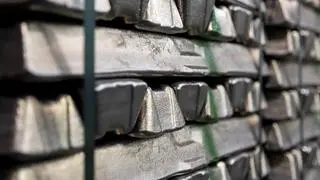Doubts have been raised in the recent times about the effectiveness of the Essential Commodity Act in the current form to control prices. On the other hand, there is no empirical evidence to prove that acting against the hoarders will bring down the price of commodities.
The annual report of the Department of Consumer Affairs gives some interesting facts about the effectiveness of the Essential Commodities Act:
It is even more interesting to observe that the conviction to arrest percentage in the post-election period of 2009 was 9.87 per cent. It was 10.18 per cent during the pre-election period (2012-13) but fell dismally below 1.5 per cent during the intervening period.
The Essential Commodities Act is often supplemented by stock control orders. Thus in some cases, the regulatory authority or prosecutor are able to get direct evidence that stocking of the commodities was done with the intention for profiteering.
It is often difficult to get direct evidence – either through documents or testimony. State government has to enforce the provisions of the Essential Commodities Act.
The short-duration spurt in onion prices, which is encountered every year and seen this year too, needs to be seen whether it is a case of price rise or price gouging.
Price gouging (a term not often used) is a situation when a seller prices commodities at a level much higher than what is considered reasonable.
In the US, laws against price gouging have been held constitutional at the State-level as a valid exercise of the police to preserve order during an emergency and may be combined (like in India) with anti-hoarding measures. Laws against price-gouging have been enacted in 34 States in the US. Exceptions are prescribed for price increases that can be justified in terms of increased cost of supply, transportation or storage.
Proponents of laws against price gouging assert that it can create an unrealistic psychological demand that can drive a non-replenish able item into extinction.
As the new Government in India is embarking on enactment of changes in the Essential Commodities Act, we must understand that statutes generally give wide discretion not to prosecute. In some of the states in the US, only one-third of complaints were unfounded and a large fraction of the remainder was handled by consent decrees, rather than prosecution.
What if an anti-hoarding law is passed where arrests are non-bailable for hoarders to symbolise opposition to scarcity? Let’s abolish causes of scarcity. Will sending people to jail bring down the scarcity?






Comments
Comments have to be in English, and in full sentences. They cannot be abusive or personal. Please abide by our community guidelines for posting your comments.
We have migrated to a new commenting platform. If you are already a registered user of TheHindu Businessline and logged in, you may continue to engage with our articles. If you do not have an account please register and login to post comments. Users can access their older comments by logging into their accounts on Vuukle.